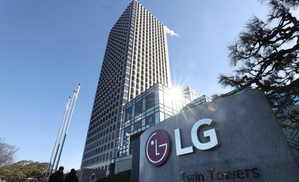
Seoul The South Korean company LG Electronics’ information technology subsidiary, LG CNS, said on Thursday that it had inked contracts to build smart city solutions and EV charging infrastructure in the US.
The Brooklyn Army Terminal (BAT), a former military supply facility now being transformed into a contemporary commercial and industrial centre, is where LG CNS will construct and run EV charging stations as part of an agreement with the New York City Economic Development Corporation.
According to LG CNS, the business will also install a charging and discharging control system as part of the Pilots at BAT initiative, as well as a mobile app that gives consumers access to real-time energy use statistics, according to Yonhap news agency.
Additionally, LG CNS and a U.S. government organisation inked a second deal for the construction of smart city infrastructure in Hogansville, Georgia.
The project involves installing smart poles and an integrated control system that uses AI-driven solutions to enhance connectivity, public safety, and urban operations.
LG CNS said that it intends to use its knowledge of digital transformation and sustainable infrastructure to extend its green smart city projects across the United States.
The top automaker in South Korea, Hyundai Motor, said Thursday that it would introduce the brand-new Palisade sport utility vehicle (SUV) in the US later this year.
Since January, the second-generation Palisade SUV—a complete redesign after six years—has been offered for sale domestically.
Prior to its U.S. introduction in the second half of the year, Hyundai Motor unveiled its new flagship SUV at the New York International Auto Show, which is scheduled to run until April 27.
According to a press statement from the firm, the new Palisade is available for the U.S. market with a 2.5-liter turbocharged gasoline hybrid engine or a 3.5-liter gasoline engine.
Models featuring a 2.5-liter gasoline turbocharger or a 2.5-liter gasoline hybrid engine have been introduced in Korea.
Because the automotive business is driven by customer demand, Hyundai Motor continues to invest in gasoline and gasoline hybrid models, hydrogen fuel cell electric cars, and extended range electric vehicles (EREVs), according to CEO Jose Munoz.